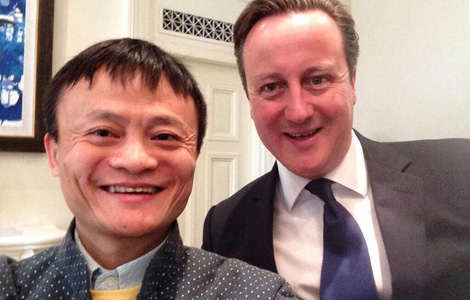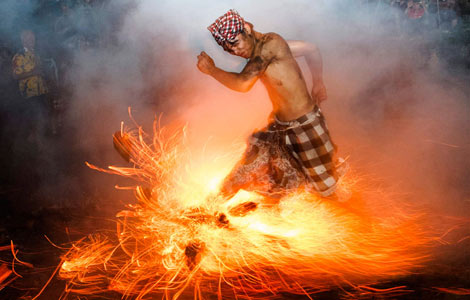HK starts public consultation for reform
Updated: 2013-12-04 18:22
(Xinhua)
|
||||||||
HONG KONG - The Hong Kong government on Wednesday officially kicked off public consultation for a constitutional reform which aims to realize the election of next Chief Executive of Hong Kong Special Administration Region (SAR) by universal suffrage in 2017.
Announcing the consultation document, Carrie Lam, Chief Secretary for Administration, made a statement at a weekly meeting of the Legislative Council on the methods for selecting the fifth Chief Executive and forming the next legislature.
Lam, who also heads a special team for the public consultation, said the public consultation period will last for five months.
She said the election by universal suffrage of the Chief Executive and the Legislative Council must be implemented under the framework of the Basic Law as well as decisions and interpretations of the Standing Committee of the National People's Congress, China's top legislature.
According to the Basic Law and the top legislature's explanations, amending the two elections' methods in Hong Kong needs to go through a five-step progress.
"First, the Chief Executive to make a report to the Standing Committee of the National People's Congress so as to invite the top legislature to decide whether it is necessary to amend the methods of selection and formation," Lam said.
"Secondly, the NPC Standing Committee to make a determination on whether any amendment to the methods may be made.
"Thirdly, if the NPC Standing Committee determines that amendments to the methods may be made, the SAR government to introduce to the Legislative Council a resolution on the amendments to the methods to be passed by a two-thirds majority of all Legislative Council members.
"Fourthly, the Chief Executive to consent to the resolution as passed by the Legislative Council, and finally the Chief Executive to lodge the relevant bill to the NPC Standing Committee for approval or for the record," Lam said.
According to the Basic Law and decisions of China's top legislature, the election of the fifth Chief Executive of the Hong Kong SAR in 2017 may be implemented by the method of universal suffrage.
Lam said in her statement that in devising a model for implementing universal suffrage, the government must ensure it is consistent with four major principles: meeting the interests of different sectors of the society, facilitating the development of the capitalist economy, gradual and orderly progress, and appropriate to the actual situation in Hong Kong.
"Today is a milestone in the development of Hong Kong's political system," Chief Executive Leung Chun-ying said on Wednesday, adding the government will hold an open attitude to heed public views during the consultation.
Leung told reporters that he and the entire government are fully behind the efforts for the consultation. "We should be rational in the forthcoming discussions about the methods of electing the Chief Executive in 2017 and also electing members of the Legislative Council in 2016," he said.
The Hong Kong government also launched a special website, www. 2017.gov.hk, on Wednesday to solicit public views along with the consultation document's full text, key facts about Hong Kong's constitutional development and other related information.
The 55-page document does not elaborate detailed proposals for the constitutional reform, but raises topics and questions related to the reform for the public to debate.
Since China resumed sovereignty over Hong Kong on July 1, 1997, China has implemented "one country, two systems" for the region under the Basic Law, and Hong Kong's political structure has been developing towards the ultimate aim of universal suffrage in a gradual and orderly manner.
The first-term Chief Executive was nominated and elected by the Selection Committee, and the second to the incumbent fourth terms were nominated and elected by the Election Committee. The size of the Selection Committee and the Election Committee has gradually expanded from 400 members in 1996, to 800 in 2002 and 1,200 in 2012.
China's top legislature made a decision in December 2007 which gives a clear timetable that "the election of the fifth Chief Executive of the Hong Kong SAR in 2017 may be implemented by the method of universal suffrage; that after the Chief Executive is selected by universal suffrage, the election of the Legislative Council of the Hong Kong Special Administrative Region may be implemented by the method of electing all the members by universal suffrage".
Most Viewed
Editor's Picks

|

|

|

|

|

|
Today's Top News
Air identification zone shadows Biden trip
Detroit eligible for bankruptcy
Chinese realtor endows Harvard
China challenges on dumping
Subway project disrupts Chinatown
M&As looking good in China
Peacekeepers depart for Mali
New urbanization plan on the way
US Weekly

|

|














